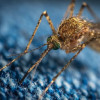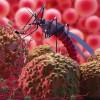
 IJCP Editorial Team
IJCP Editorial Team
Dissociative Identity Disorder
Dissociative Identity Disorder (DID), also known as Multiple Personality Disorder or split personality disorder, is a mental health condition where people have two or more separate personalities. These identities manipulate the person's behaviour at various times. Each identity owns unique personal history, traits, likes, and dislikes. DID can cause hallucinations and voids in memory.
Dissociative disorders contain a range of conditions that can cause physical and psychological problems. Some dissociative disorders are very short-lived, likely after a traumatic life event, and resolve independently over weeks or months, yet others can last much longer.
DID is a rare disorder that affects between 0.01 and 1% of the population. It can occur at any age and has a predisposition for Women.
Other dissociative disorders
DID is one of several dissociative disorders affecting a person's ability to connect with reality. Other dissociative disorders are:
• Depersonalized or derealization disorder causes a feeling of detachment from actions.
• Dissociative amnesia, or problems recognizing information about oneself.
Cause of DID
DID usually occur as a consequence of sexual or physical abuse during childhood. Sometimes it may develop as a reaction to a natural disaster or other traumatic events like combat. The disorder serves as a pathway for a person to estrange or detach themselves from trauma.
For example, during a traumatic experience like an accident, disaster, or crime victimization, dissociation can enable a person to tolerate what might otherwise be too difficult to bear. In such situations, a person may dissociate the remembrance of the place, situations, or feelings about the overwhelming event, mentally fleeing from the fear, pain, and terror. This may make it difficult to remember the details of the experience later.
Signs and Symptoms of DID
A person with DID possesses two or more separate identities. The "core" identity is the individual's usual personality. "Alters" represents the individual's alternate personalities. Some individuals with DID can hold up to 100 alters.
Alters are usually very different from one another. The identities might have different genders, ethnicities, interests, and interactions with their environments.
Other common signs and symptoms observed in DID are:
• Anxiety.
• Delusions.
• Depression.
• Disorientation.
• Drug or alcohol abuse.
• Loss of Memory.
• Suicidal inclinations or self-harm.
• Feeling disconnected from oneself and the surroundings.
• Difficulty remembering certain time periods, events, and personal information.
• Feeling uncertain about oneself.
• Containing multiple distinct identities.
• Feeling little or no physical pain.
Risk Factors and Suicide Risk
Most people with dissociative identity disorder have been found to be the victims of childhood abuse and neglect. The majority of people with dissociative disorders report experiencing repetitive, overwhelming trauma in childhood. People who have experienced physical and sexual abuse in childhood have a greater risk of dissociative identity disorder. Suicide attempts and other self-injurious behaviour are often seen among people with dissociative identity disorder. Evidence indicates about 70% of outpatients with a dissociative identity disorder will attempt suicide.
Diagnosis and Tests
No single test can diagnose DID. A healthcare provider reviews the individual's symptoms and personal health history and may perform tests to rule out underlying physical causes for symptoms, like head injuries or brain tumors.
DID symptoms often occur in childhood, between the ages of 5 and 10. However, parents, teachers, or healthcare providers may miss the signs. DID is often confused with other behavioural or learning problems common in children, like attention deficit hyperactivity disorder (ADHD), and thus is usually isn't diagnosed until adulthood.
Criteria for Diagnosis of DID include:
• The existence of two or more separate identities (or personality traits). Alterations in behaviour, memory, and thinking accompany these distinct identities. The signs and symptoms may be observed by others or described by the affected person.
• Persistent gaps in memory concerning everyday events, personal information, and past traumatic events.
• The symptoms generate significant despair or problems in social, occupational, or other areas of functioning.
Management and Treatment
Some medications may help with specific symptoms of DID, like depression or anxiety. However, the most effective treatment remains psychotherapy, which focuses on the following:
• Recognizing and overcoming past trauma or abuse.
• Handling sudden behavioural changes.
• Connecting separate identities into a single identity.
Cognitive behavioural therapy and dialectical behavioural therapy are commonly used therapies. Hypnosis may also be helpful in the treatment of dissociative identity disorder.
Prevention
There's no way to prevent DID; however, identifying the signs and seeking early treatment can help manage symptoms. Treatment soon after episodes of abuse or trauma may contain DID from progressing.
Living with DID
DID can be managed smoothly with a strong support system. Having healthcare providers, family members, and friends who know about and understand the condition can help individuals with DID cope easily. Communicating openly and honestly with the people in the support system and not being afraid to ask for help is crucial for recovery.
Summary-
DID is a mental health condition where individuals show multiple, distinct personalities that control a person's behaviour at different times. The state can lead to memory loss, delusions, or depression. DID is usually caused by past trauma, and occupational therapies can help people manage their behaviours and reduce the frequency of identity "switches." It's crucial for a person with DID to have a robust support system. Healthcare providers, family members, and friends can help manage symptoms of DID.

IJCP Editorial Team
Comprising seasoned professionals and experts from the medical field, the IJCP editorial team is dedicated to delivering timely and accurate content and thriving to provide attention-grabbing information for the readers. What sets them apart are their diverse expertise, spanning academia, research, and clinical practice, and their dedication to upholding the highest standards of quality and integrity. With a wealth of experience and a commitment to excellence, the IJCP editorial team strives to provide valuable perspectives, the latest trends, and in-depth analyses across various medical domains, all in a way that keeps you interested and engaged.














Please login to comment on this article